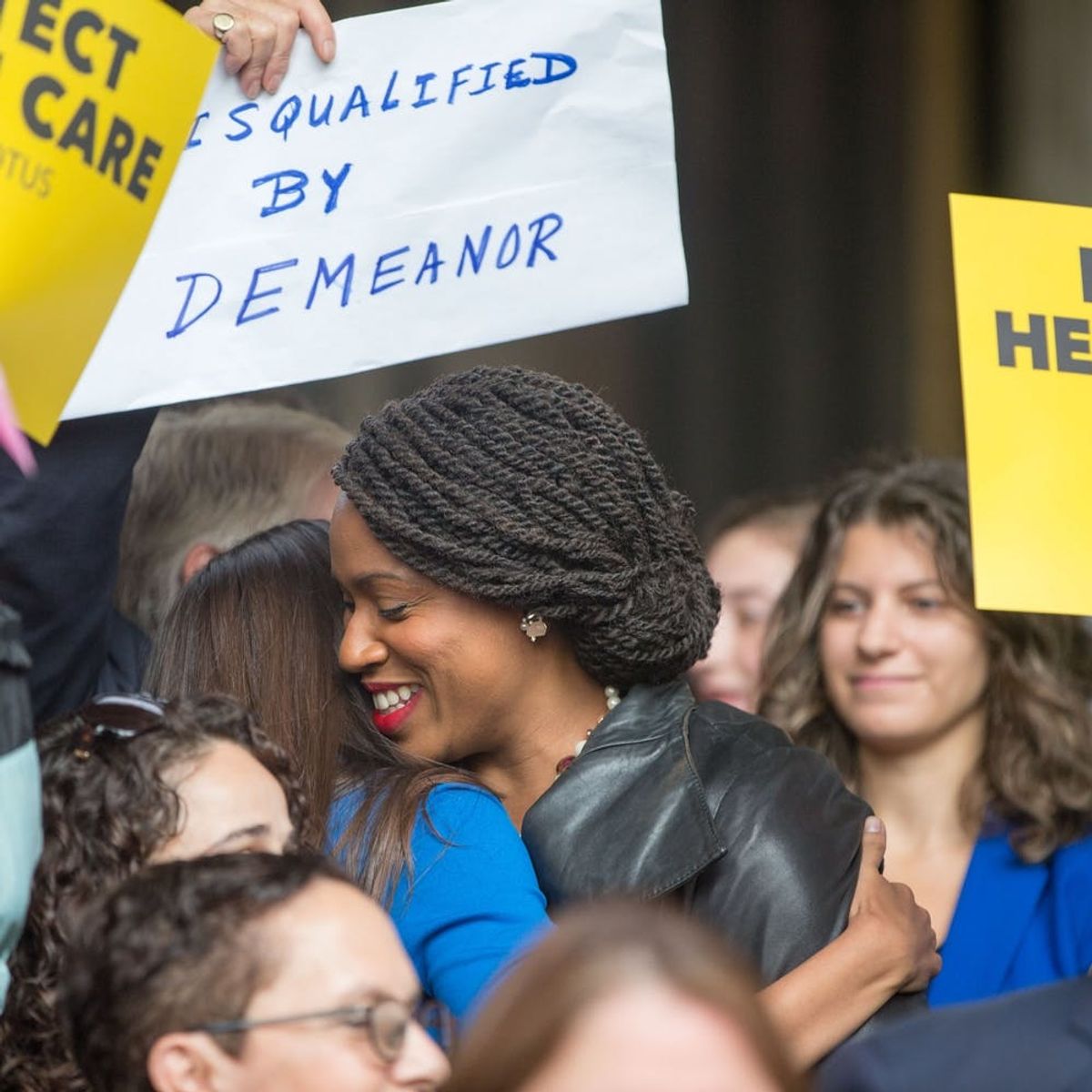The gift of learnings.
These Newly Elected Democrat Congresswomen Gave Future Candidates an Invaluable Lesson

President Donald Trump declared the 2018 midterm elections a success. Despite the fact that Democrats took control of the US House, Trump was proud of the fact that Republicans retained their hold of the US Senate.
“This vigorous campaigning stopped the blue wave that they talked about. I don’t know if there ever was such a thing, but could have been, if we didn’t do the campaigning,” Trump said during a rare post-election press conference in the White House that lasted almost an hour-and-a-half. “History really will see what a good job we did in the final couple of weeks in terms of getting some tremendous people over the finish line.”
For Democrats and non-Trump supporters, Tuesday night’s election returns were reminiscent of the 2016 presidential election. Voters knew that certain contests — like Beto O’Rourke vs. Ted Cruz, and the ongoing vote recount in Georgia and potentially forthcoming recount in Florida — would be tight. Poll-watchers were (and still are, in some cases) on the edges of their seats.

Despite the immense support for passionate and dedicated candidates such as O’Rourke, Stacey Abrams, Andrew Gillum, and Paulette Jordan, among others, their slim losses (or, in Abrams’ case, lack of definite victory) reinforce an important lesson: People in the US aren’t necessarily judging a candidate based on their charisma, celebrity endorsements, or even if they have convictions against them. People care about the issues that will affect them, and candidates who demonstrate that they have those voters’ best interests in mind.
Writer Andrew Rice, who followed O’Rourke on his campaign trail for New York magazine, notes that the politician “ended up winning 16,000 fewer votes than Hillary Clinton in Harris County.” Rice points out that, in order to really secure the “Latino-dominated border counties of the Rio Grande Valley” necessary to win, he would have had to do better there — that is, to put in the legwork to reach those voters.
Rice further argues that O’Rourke perhaps played it too safe, and didn’t go after Cruz where it really mattered: “Democratic strategists were perplexed by O’Rourke’s unwillingness to frontally assault Cruz when it came to issues like immigration, or to counter his negative personal attacks.”

While it’s great to hear candidates speak about uniting the country, some losing candidates demonstrated that leaning on broad messages about immigration, health care, and violence is not visceral enough to captivate an electorate. By and large, the Democrat successes that did materialize in the House went to candidates who ran more intimate campaigns.
Some newly elected congresswomen — like Alexandria Ocasio-Cortez, Deb Haaland, Sharice Davids, Rashida Tlaib, and Ayanna Pressley — ran distinctively grassroots campaigns. They knew their constituents on a personal level — they were in their homes, in their schools, listening and speaking to them one-on-one. That is what many of the nation’s races — gubernatorial and Senate races, in particular — were missing.
We already knew that Democrats would vote for O’Rourke, Abrams, and Gillum. The narrow results are a testament to those candidates’ campaigns and hard-working volunteers. But in order to secure a vote from the majority, these Democratic candidates needed to cross the line and speak to those who feel protected under Trump. They also needed to convey a concrete plan about how they would execute effective change.
“This is not a conventional moment, so conventional wisdom doesn’t seem right for this moment. There’s so many things that are pushing this in unconventional ways,” ABC News Political Director Rick Klein said this week on the Powerhouse Politics Podcast. “Part of it is the engagement of voters that traditionally haven’t been engaged before. Part of it is President Trump, part of it is the fact that he has a strong economy to run on — that’s unusual.”
Who knows if Trump’s racist ad against immigrants and Latinx people secured the ballots of GOP voters, or if his words about the so-called “invasion” of Central Americans (a great many of them, asylum-seekers) made them fear change. Or maybe Republican voters felt the economy would falter if Democrats took over. What they needed to hear from Democrats was that they had a solid plan for immigration reform or, more urgently, a strategic way to fix the health care system. They needed tangible details about how their lives would be better under Democratic leadership.
If Democrats wants to win in 2020 — yes, Trump is already campaigning to be re-elected — they better start taking notes from the women and first-time politicians who were just elected into the US House, because they clearly know how to get the job done.
(Photos by Scott Eisen + Chip Somodevilla/Getty)

















